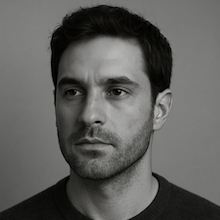
A recent study by Israeli researchers has highlighted the profound impact that ongoing conflicts with Hamas and Iran are having on the health and well-being of Israeli civilians—particularly concerning sleep, anxiety, and addiction. The findings come as violence in the region continues, punctuated by air raid sirens, missile attacks, and strikes on both civilian and healthcare facilities.
According to the study, there has been a significant rise in reported sleep problems and clinical insomnia since the hostilities intensified, especially following the deadly October 7, 2023, Hamas attack on Israeli civilians. The escalation led to repeated nighttime disruption, forcing residents across Israel to seek shelter in public bomb shelters multiple times throughout the night. The constant threat and psychological stress have contributed to a sharp decline in both sleep quality and duration. The number of Israelis getting fewer than six hours of sleep nightly has notably increased, and the prevalence of clinical insomnia has likewise grown. Before the war, about a quarter of respondents reported new sleep issues, a figure that has since doubled. The effects have been particularly severe among women and individuals with injured or abducted friends or family members.
This is the first systematic effort to track the health impacts of warfare on civilian sleep patterns in Israel. Data was collected through hundreds of surveys taken before and during recent escalations. Researchers stressed that the consequences of disrupted sleep—ranging from persistent anxiety to diminished long-term health—may last months or longer, affecting the entire general population.
Missile attacks have produced direct civilian casualties, with eight Israelis killed during recent overnight strikes. Hospitals have also been struck, including an incident in southern Israel where a missile hit a facility and injured about 30 people while patients were being treated. Officials described this as the most severe strike on an Israeli hospital in the country's history, highlighting the dangers faced by both the public and the healthcare system. Strikes have targeted military assets such as missile and nuclear sites, but civilian buildings and scientific research centers have also seen significant damage. Scientists at leading research institutes voiced concerns about the long-term impacts on scientific progress after laboratory facilities were destroyed in ongoing rocket attacks.
Beyond immediate casualties, the conflict is contributing to a broad mental health crisis in Israel. The study notes a sharp increase in anxiety and sleep disruption across the population, with health officials calling it the worst situation for public health since prior rounds of violence. Dr. Shaul Lev-Ran, founder of the Israeli Center for Addiction and Mental Health, reported a 25 percent rise in addiction-related behaviors—particularly the use of prescription drugs, illegal narcotics, and alcohol—among survivors and displaced individuals. The reliance on sleep aids and painkillers has increased, raising fears of a potential addiction epidemic.
Children have also suffered acute psychological trauma. Research has found that approximately half of children in Jerusalem now experience symptoms of post-traumatic stress disorder (PTSD)—two to three times the rate of children exposed to other traumatic events. In southern cities like Sderot, which experience frequent rocket and mortar fire from the Gaza Strip, air raid sirens and explosions have led to widespread PTSD and severe anxiety among minors (source).
The Israeli healthcare system has struggled to absorb the effects of the violence. A comparative study of the 2023 and 2014 Gaza wars found that the recent conflict produced a higher volume and greater severity of injuries, leading to more hospitalizations and critical cases. While mortality rates did not rise—a sign of improved trauma care—the burden on medical resources has increased considerably. Healthcare officials urge improved emergency preparedness and resource allocation for future crises (study).
The toll on healthcare facilities has also been stark. According to a recent study in the British Medical Journal Global Health, hospitals and health centers in Gaza experienced damage at rates similar to other buildings during the opening month of the Israeli military campaign, raising questions about compliance with international humanitarian law. The damage has severely compromised the ability of medical personnel to provide care for patients during ongoing hostilities.
As the conflict continues, the study’s findings underscore the urgent need for comprehensive health interventions and expanded support infrastructure. From addiction and mental health care to reinforced hospital systems, experts warn that the multifaceted impacts of war now extend far beyond the battlefield—deeply affecting civilian life across Israel.



